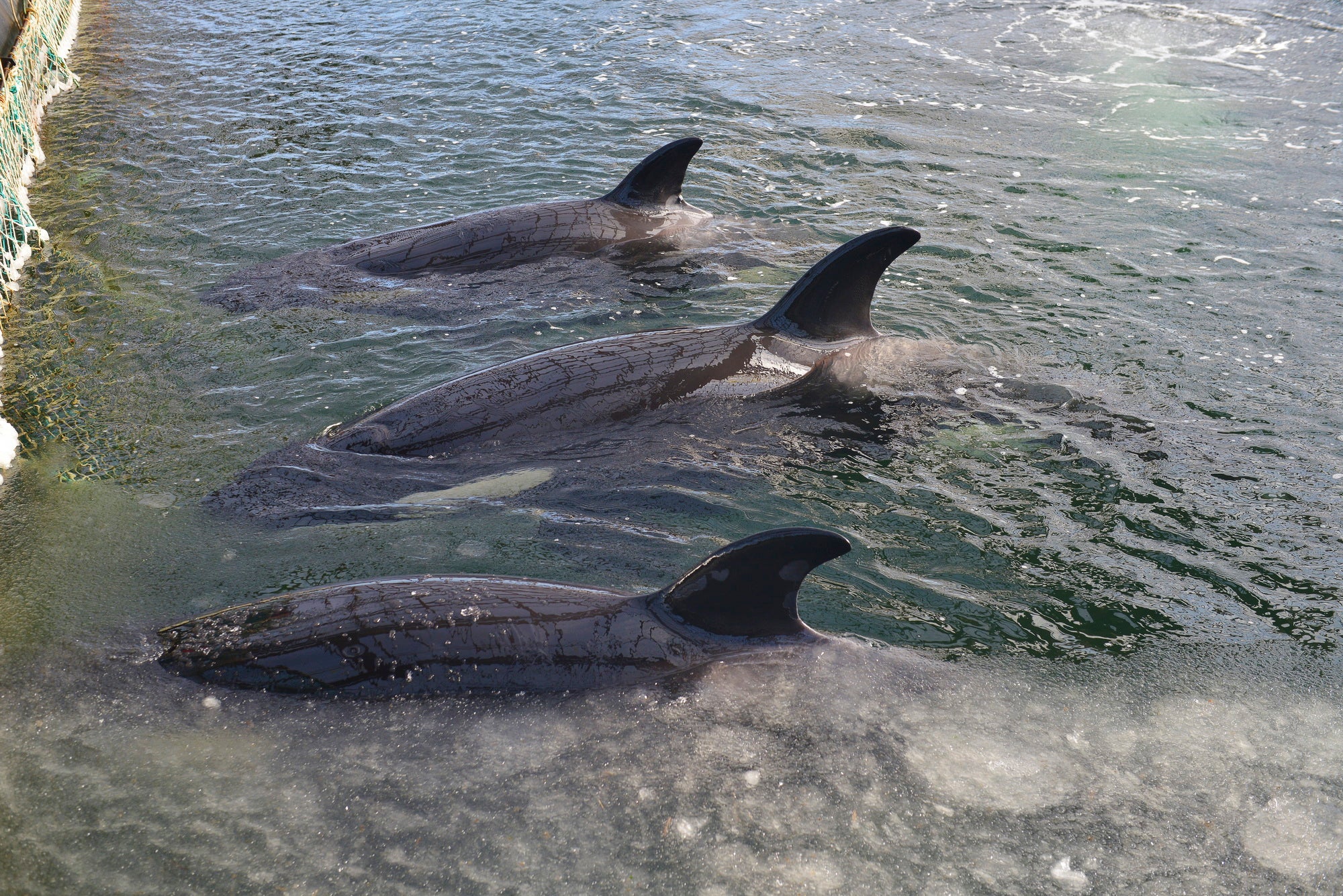Fears killer whales held captive in Russia will freeze to death as winter seas ice over
Activists appealing to Vladmir Putin for orcas' freedom warn that many have developed frostbite

Your support helps us to tell the story
From reproductive rights to climate change to Big Tech, The Independent is on the ground when the story is developing. Whether it's investigating the financials of Elon Musk's pro-Trump PAC or producing our latest documentary, 'The A Word', which shines a light on the American women fighting for reproductive rights, we know how important it is to parse out the facts from the messaging.
At such a critical moment in US history, we need reporters on the ground. Your donation allows us to keep sending journalists to speak to both sides of the story.
The Independent is trusted by Americans across the entire political spectrum. And unlike many other quality news outlets, we choose not to lock Americans out of our reporting and analysis with paywalls. We believe quality journalism should be available to everyone, paid for by those who can afford it.
Your support makes all the difference.A group of killer whales held captive in Russia’s remote far East are at risk of freezing to death as their pens ice over in mid-winter temperatures, campaigners say.
Volunteer monitors have warned that the 11 orcas and 87 beluga whales, captured last year for sale to China, may start dying after many reportedly developed frostbite.
The marine mammals were taken last summer from the Sea of Okhotsk, north of Japan, to be sold to dolphinariums.
They have since been confined to pens at a “whale jail” near Nakhodka city near Vladivostok, which the monitors say are cruel because they are a fraction of the size of natural ocean habitats.
But now it’s believed ice poses a new threat.
In winter, orcas – warm-blooded killer whales – naturally migrate to warmer seas and spend most of their time underwater.
If their dorsal fin, which regulates their temperature, freezes, they become susceptible to extreme weather.
Activists from the group Free Russian Whales, who are lobbying Vladimir Putin for the animals’ release, say they have seen one orca whose fin is “peeling off in large, flapping chunks”.
The group said: “Kirill and other orcas have developed frostbite. If something to keep the warm temperature in the enclosures is not done soon, animals most likely will start dying.
“He is completely inactive, looks sick and floating motionless for long periods.
“He often comes into contact with the icy sludge, possibly causing hypothermia with more pronounced damage to the skin… His breathing is very slow and ‘gentle’, which can be a sign of pneumonia or other diseases of his internal organs.”
Other orcas have skin lesions that it’s believed could be due to fungal diseases.
Staff at the “centre” have been seen trying to break up the ice daily, which it’s claimed causes the orcas and belugas severe stress.
“Every day a lot of ‘centre’ staff pass by, dragging their various equipment, ice-cleaning tools and heavy wheelbarrows with fish, likely causing more anxiety and stress for the killer whales,” the activists warn.
One orca has disappeared since the summer. The captors say they released it because it was behaving aggressively but experts fear it died.
Three baby belugas also disappeared, captors claiming they escaped.
The International Whaling Commission banned commercial whaling in 1982.

Volunteer Oxana Fedorova said: “Orcas and other cetaceans are like us - social and highly intelligent, and we have no right to imprison them for entertainment.”
Free Russian Whales, which has been fighting their capture for years, celebrated when, last year, prosecutors said they would investigate illegal sales to China.
In the past five years, 15 orcas and more than 200 belugas have been illegally captured and sold to Chinese aquariums, according to the group.
In the UK, opponents of Japan’s decision to resume whaling staged a protest outside the country’s embassy in London, calling for it to reverse its move.
Join our commenting forum
Join thought-provoking conversations, follow other Independent readers and see their replies
Comments